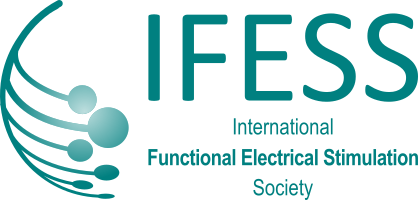Candidates (in alphabetical order of surnames)
Anil Aksöz
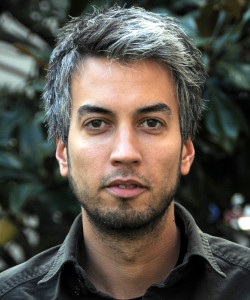
Motivation
I had the privilege to be part of IFESS first in 2016. The benefits and support that I’ve received from the association since then is extensive. Now it’s time to requite by actively supporting the society as an Executive Board Member. I would be more than happy to have the chance to contribute and promote the association and help the society to continue growing.
Biosketch
Anil Aksöz holds BSc and MSc degrees in Mechanical Engineering and Mechatronics from Baskent University. In 2010 he joined Prof. Dr. Kenneth Hunts team in Switzerland, Institute for Rehabilitation and Performance Technology (IRPT), in Bern University of Applied Sciences where he focused in FES cycling systems. He received his PhD degree in 2018 from ETH Zurich, Sensory Motor Systems Lab with his doctoral thesis titled “Optimising Performance in Paraplegic FES-Cycling by Modulating Stimulation Parameters”. He worked with Prof. Vance Bergeron in ENS de Lyon as Postdoctoral Researcher and since April 2020, he continues his research in University of Bern, ARTORG Center for Biomedical Engineering Research, Motor Learning and Neurorehabilitation Laboratory with Prof. Dr. Laura Marchal-Crespo.
Ines Bersch
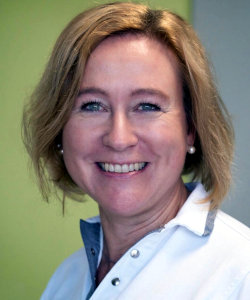
Motivation
My active participation in IFESS began in 2014. Since then I am a member of the executive board. As a therapist and researcher, I am in the privileged situation to conduct clinical trials and transfer the results directly into clinical practice. Furthermore, my team and I focus on the transfer into clinical practice, involving the implementation of new findings of scientists and new technologies developed by engineers. The interprofessional exchange of knowledge and experience is the base of the improvement of clients’ treatment to improve their quality of life.
Biosketch
Dr. Bersch is a graduated Physiotherapist since 1989. In 1991 she went to the Swiss Paraplegic Centre, Nottwil and became two years later the substitute chief of physiotherapy. In 1992 she started to work with functional electrical stimulation and its implementation in spinal cord injury rehabilitation. At the same time, she started to teach as an instructor at the Universities of Applied Science at Bern, Zürich (1998-2005) and Basel (2007) covering spinal cord injury rehabilitation, treatment of peripheral nerve lesions and functional electrical stimulation. In 2008 Dr Bersch absolved the Bachelor of Education Science, in 2012 the Master of Science in Neurorehabilitation Research at the Danube University of Krems (Austria) and in 2019 the PhD at the University of Gothenburg, Sahlgrenska Akademin, Sweden. The PhD project investigated the “Upper and Lower Motoneuron Lesions in Tetraplegia – Diagnostic and Therapeutic Implications of Electrical Stimulation”. From 2014 –2017 she worked as a therapy instructor for physio- and occupational therapists in a team of 120 therapists and was responsible for the advancement of functional electrical stimulation, robotics and the evidence of therpeutical treatments. In January 2018, the Swiss Paraplegic Centre established the International FES Centre for Treatment and Education. As the leader of this department she focuses her work on the combination of patients’ treatment and research in this field to transfer the results from clinical trials and technical research as well as new technologies into daily rehabilitation. The Swiss Paraplegic Centre electrical stimulation is an established treatment for in- and outpatients.
Glen M. Davis
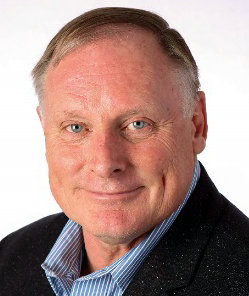
Motivation
I feel that making a contribution to serve the FES community can be in part through its flagship society – IFESS. My interest to contribute to the Board is multi-faceted, but especially through the IFESS Promotions Working Group. I strongly believe that one of the best ways to “revitalize” our Society and drive interest in membership in it is to offer Webinars and other special interest public activities that will reach out to current FES members, but also potential future members who are engineers, physiologists and clinicians working in the FES field. I have a special interest in reaching out to early-career researchers and postgraduate students through their social media such as Twitter and Facebook.
Biosketch
Glen Davis received his undergraduate degrees in physical education from the University of Ottawa (1974) and his Doctorate (PhD) in exercise physiology from the University of Toronto in 1986. He was conferred Fellow of the American College of Sports Medicine (FACSM) in 1987 and received the prestigious Order of Australia (OAM) for research and service to spinal cord injury rehabilitation in 2014.
Currently, Dr Davis is Professor of Clinical Exercise Sciences at the University of Sydney, where he is also Director of the Clinical Exercise and Rehabilitation Unit within the Faculty of Health Sciences. He is member of University of Sydney Academic Board and is a Director on the agency Spinal Cord Injuries Australia.
Professor Davis’s main research and innovation activities are to deploy novel assistive technologies, surveillance technologies and other medical devices to clinical populations to improve ‘dose-potency’ of exercise for health, fitness and functional outcomes in these populations. He has a particular focus on the use of functional electrical stimulation (FES) and robotic technologies, including neuroprostheses, for individuals with spinal cord injury and stroke, to improve their exercise quality, guide clinical exercise prescription and increase their aerobic fitness and muscular strength for improved activities of daily living.
Professor Davis is also active and leads Australian researchers in Activity-based Therapy for individuals with neurological conditions, through his leadership and involvement with the NeuroMoves Australia multi-site centres. He also has an emerging research leadership role in transcutaneous spinal cord stimulation when combined with Activity-based Therapy and leg FES exercise.
Professor Davis has been Chief Investigator on numerous national and international projects with research income exceeding AUD12M, including AUD 5M in the current 3-year cycle. These have included projects in Australia, Malaysia, Thailand and Switzerland into exercise for breast cancer survivors, congenital heart disease, increasing physical activity in community-embedded individuals with intellectual disability, use of body-worn sensors as feedback arrays to FES systems, FES robotic systems for walking, and FES-cycling exercise in persons with spinal cord injury. On these topics, Dr Davis has published 19 book chapters and over 125 peer-reviewed journal articles.
Kei Masani
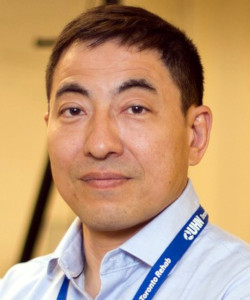
Motivation
FES sciences are getting more interdisciplinary and spans communities around the world. We know that such approaches broaden and deepen the science by providing diverse perspectives. International collaborations also have higher success rates in research endeavors. Through globalized and international research communities we need to promote communication between different disciplines. I believe that my career, kinesiology training experiences in Japan and professional experiences in Canada working at a hospital in the bioengineering field, would definitely contribute to the promoting the interdisciplinary and international collaborations and research within the IFESS. My experience of co-chairing IFESS2019 in Toronto at Rehabweek2019 will further help in connecting international-interdisciplinary scientists. I therefore hope to have an opportunity to serve the IFESS, especially to facilitate participation of young researchers in IFESS.
Biosketch
Kei Masani received the Ph.D. degree in physical and health education from the University of Tokyo, Tokyo, Japan in 1997. He is currently a Senior Scientist at Toronto Rehabilitation Institute – University Health Network, Toronto, Canada, and an Assistant Professor at Institute of Biomedical Engineering, University of Toronto. Dr. Masani’s research aims to improve the mobility of people who experience neurological impairment. His approach to investigating human movement is undertaken from a neuromechanical perspective, i.e. the union of neurophysiology and physics. With this in mind, Dr. Masani focuses specifically on developing accurate assessments and therapeutic tools using functional electrical stimulation for standing, walking and adapted exercise. Particularly in the FES research field, he has been developing a novel technology to reduce muscle fatigue during FES, called as Spatially Distributed Sequential Stimulation (SDSS), supported multiple funds by Canadian Institutes of Health Research. Further, he has been developing a FES therapy for maintaining standing balance, for individuals with spinal cord injury, based on his investigation on the physiological control system of human standing.
Matija Milosevic
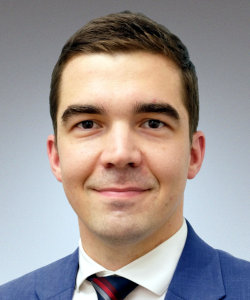
Motivation
My primary motivation in running for the Executive Board is a commitment to improve conditions for our IFESS community.
There are a number of matters which I would like to address at the Executive Board level:
(1) Pertaining to the IFESS community, I wish to contribute to the promotion and growth of our community internationally as a way to attract new members. A focus on early career researchers and students would be a priority. Attracting new members would ensure that our IFESS community continues to grow and that FES technologies and research become more accessible and widespread.
(2) I also wish to improve the communications within the IFESS community. I believe that it would be beneficial to provide platforms for sharing updates about our society, as well as news relevant to FES, in order to help engage diverse members of our community. Therefore, I hope to contribute to updating and maintaining the IFESS website and building other social media planforms.
(3) I strongly believe that education about safety, ethical considerations, and application guidelines are essential to adaptation of FES technologies in clinical practice and research. I also wish to establish an IFESS working group, with the aim to produce periodic reports on the basic principles and procedures for application of FES technologies. By producing such a report, IFESS would provide a substantial contribution to the clinical and academic community.
Biosketch
I am currently an Assistant Professor in Osaka University (Japan). My career with FES begun in Toronto (Canada), where I completed my graduate studies in rehabilitation engineering under the supervision of Dr. Milos R. Popovic. I received a Ph.D. degree in biomedical engineering from the University of Toronto in 2015. After that, I moved to Japan, where I spent several years examining neurophysiology of FES with Dr. Kimitaka Nakazawa at the University of Tokyo. Japan was a wonderful experience for me, so I decided to stay and begin my academic career here in Osaka. Specifically, my research spans applications of engineering principles in neurophysiology and neuroscience. My work aims to develop FES technologies and examine short- and long-term reorganization in the central nervous system after use of closed-loop FES technologies and how FES can influence neuroplasticity to improve motor function in individuals with neurological impairments. I have been a member of the IFESS community since 2012.
Christine Singleton
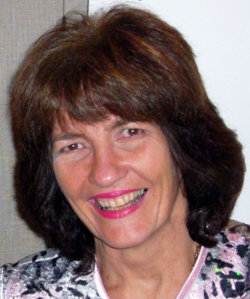
Motivation
I am committed to the awareness and development of the many applications of FES for patient benefit. My FES journey started in 1995, has been exciting, rewarding and innovative as I have strived to change practice and inspire fellow clinicians to embrace FES as a valued treatment modality. It would be a privilege to join international colleagues on the IFESS EB to share our experiences, to utilise our many strengths and go some way to advance the cause of FES.
Biosketch
- Clinical Specialist and Lead of Functional Electrical Stimulation (FES) Service.
- Project Manager for Rehabilitation Services
- MSc, HCP, MCSP, OCPPP
- Qualified Chartered Physiotherapist (UK- 1982)
- Masters degree in Healthcare Sciences – Research (B’ham 2002)
- Clinical Lead for the West Midlands Rehabilitation Services 2008-2012
- Clinical experience in the field of neurology since 1990 establishing 2 x FES clinics in Birmingham UK in 1995 & 2002
- Lecturer/trainer and Clinical Lead of the Regional FES clinic at the West Midlands Rehabilitation Centre (B’ham) since 2002
- Private Practitioner since 2000
- Project Manager for West Midlands Spasticity Network (2003-2013)
- Founder member of Therapists in Multiple Sclerosis (TiMS) in 2004 and FES Applications in Rehabilitation FESAiR in 2005 – an international partnership
- Educate and support clinicians nationally and presented on FES at the World Physical Therapy Congress in Vancouver June 2007
- A member of the steering group which delivered the National MS audits (2006, 2008 & 2011)
- Trustee for the MS Trust since 2015
- Successfully published peer review papers on the subject of FES
- Currently researching into FES for chronic constipation
